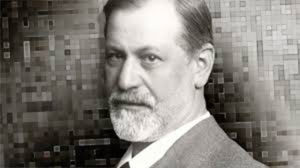Complexités d’Oedipe
Résumé
L'auteur se propose d'indiquer quelques insuffisances du modèle freudien de l'oedipe et de la castration. Celui-ci repose sur la théorie du monisme sexuel qui met la femme en marge de la condition humaine et empêche, ipso facto, une pleine reconnaissance et intégration de la bisexualité psychique. Au terme de l'oedipe, la constitution du Surmoi freudien est fondé sur la peur du gendarme (angoisse de castration) et ne permet pas de comprendre l'accès à une morale véritable.
La notion kleinienne d'élaboration dépressive du drame oedipien apporte une perspective féconde et originale. Elle montre en quoi l'homme et la femme ont tous deux à affronter le dur labeur d'une perlaboration dépressive. Au terme de celle-ci, par amour pour leurs objets parentaux, dont l'union sexuelle créatrice est pleinement reconnue, ils renoncent à leurs vécus incestueux (à l'utilisation de l'identification projective pour faire intrusion dans le coït parental), et acceptent la pleine responsabilité de leur réalité psychique, ce qui leur donne accès à une morale authentique.
Samenvatting
De auteur wil in dit artikel onze aandacht vestigen op enkele onvolkomenheden in het freudiaans model van het Oidipoes – en castratiecomplex.
Dit model berust of de theorie van het sexueel monisme dat de vrouw in de rand van het mens-zijn plaatst. Het belet derhalve een volledige erkenning en integratie van de psychische bisexualiteit.
Bij de afwikkeling van het Oidipoescomplex wordt, volgens Freud, het Superego gegrondvest of de schrik voor de politie-agant (castratieagnst). Dit laat echter niet toe te begrijpen hoe men een waarachtige morele overtuiging kan verwerven.
Het Kleiniaans begrip van de depressieve verwerking van het Oidipaal drama, levert ons een vruchtbaar en origineel perspektief. Hierin wordt aangetoond hoezeer, zowel man als vrouw, zwaar moeten worstelen om die depressieve positie door te werken.
Wanneer zij er in slagen deze strijd met goed gevolg door te maken, kunnen zij er toe komen hun incestueuze belevingen op te geven. Dit gebeurt dan uit liefde voor hun ouderobjecten en met verzaken aan de projectieve identificatie waardoor zij tot dan toe binnendrongen in de ouderlijke coïtus. Daarenboven wordt de sexuele vereniging van beide ouders nu voluit als scheppend en levenverwekkend ervaren.
Summary
The author has in view to point out certain inadequacies in the Freudian model of the Oedipus and castration complexes. This is based upon a monistic sexual theory which places women on the sidelines of the human condition and prevents, ipso facto, a full recognition and integration of psychic bisexuality. At the end of the Oedipus complex, the constitution of the Freudian superego is based on fear of the policeman (castration anxiety), and does not allow the inclusion of an access to a veritable morality.
The Kleinian idea of the depressive elaboration of the Oedipal drama opens up a fruitful and original perspective. It shows how both the man and the woman must face the hard task of a depressive elaboration. Through this, by love for their parental objects, whose creative sexual union is fully recognized, they give up their incestuous way of experiencing (their use of projective identification to intrude themselves into the parents' coitus) and accept full responsibility for their psychic reality, giving them access to an authentic morality.





